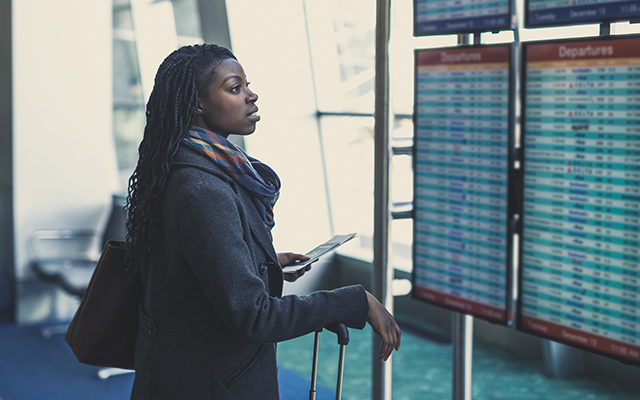In January, my thesis adviser asked me if I wanted to attend the Annual European Congress of Rheumatology meeting in Amsterdam, which is scheduled for this June. To date, this is the easiest question my adviser has ever asked me, and my answer was a resounding “yes.” In most ways, a scientific conference is basically the same regardless of its location. However, with the travel, local culture and potential language barriers, international conferences present some unique challenges that you’ll want to prepare for to have a successful experience. Here are four tips to help your scientific travels go smoothly:
- Get there early.
 When I arrived at the conference center, I wasn’t surprised to see a number of scientists cruising around with their carry-on in one hand and a cup of coffee clutched in the other. Jet lag is real, and coffee is not a miracle cure. Arriving the day before your conference starts gives you the chance to get settled in your accommodations, test out the public transportation and have a decent night of sleep. This will certainly help you be productive and alert during the hours of talks and poster sessions.
When I arrived at the conference center, I wasn’t surprised to see a number of scientists cruising around with their carry-on in one hand and a cup of coffee clutched in the other. Jet lag is real, and coffee is not a miracle cure. Arriving the day before your conference starts gives you the chance to get settled in your accommodations, test out the public transportation and have a decent night of sleep. This will certainly help you be productive and alert during the hours of talks and poster sessions.
- Be cognizant of potential language barriers.
Although English is the primary language at the vast majority of international conferences, it is important to remember that it is not the first language of many attendees. Even for a native English speaker, text-heavy posters or slides can be overwhelming. When presenting your research, it is important to ensure that your data and figures are clear and easy to follow, and that you speak clearly. I presented a poster at this conference, and many people wanted to read my poster as opposed to hearing me present it to them as I usually would at a conference. In general, being understanding of language barriers and offering to answer any questions or share slides will ensure that your research will be understood by the diverse conference attendees.
- Research your destination.
A conference center functions like a safe, English-friendly, scientific bubble. Even if you aren’t planning to play tourist, you will need to go out to eat dinner or possibly even grab drinks with other conference attendees. I recommend researching some cultural norms (such as expectations regarding tipping), looking up the currency exchange rates and learning some basic phrases in the local language. You can typically cover your bases and win some sympathy by simply knowing how to say “hello,” “excuse me,” “do you speak English?” and “thank you.”
- Take time to see the sights!
Thesis advisers understandably look down on skipping conference sessions, but most understand or even encourage taking extra days to vacation before or after the conference. This extra time might range from a few days to a couple of weeks, and may even include visiting additional countries. It can be a struggle for graduate students to justify taking a vacation, and an international conference can be just the excuse we need.
Attending an international conference is a fantastic opportunity to present your research on the global stage, build international collaborations and explore a new country. Hopefully these tips will help your trip go smoothly, and as the Dutch would say, “Goede reis!”
